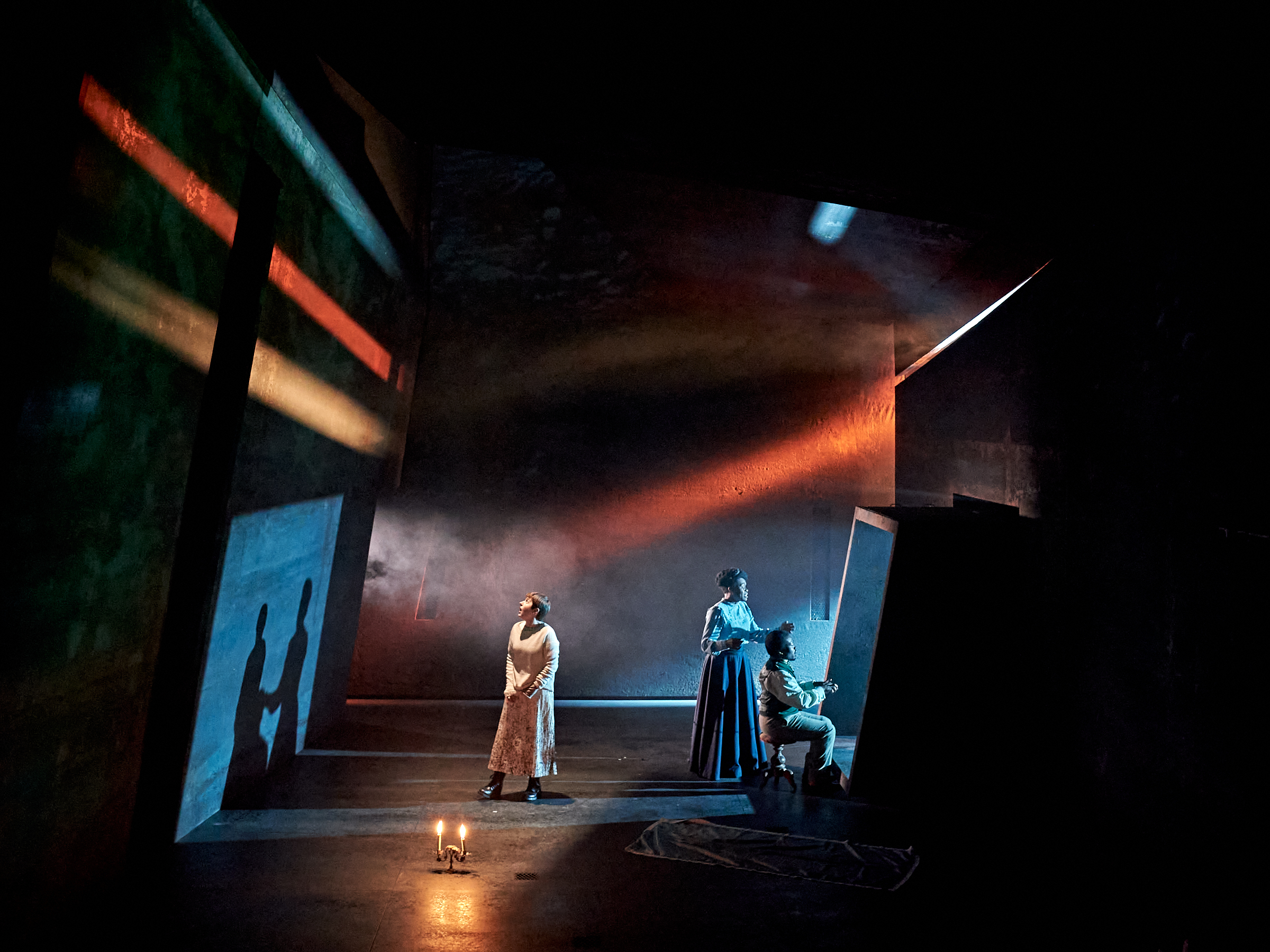It is the mid-19th century and a spiritualist (Rakie Ayola) has plucked a young, nameless woman (Ria Zmitrowicz) from the depths of a victorian asylum and brought her to the home she shares with her sullen son (Fisayo Akinade) to act as a human bridge to the afterlife. That’s the easy part to explain – from here things get complicated and potentially spoiler-heavy. The young woman reveals herself to be more than a passive victim for spirits to communicate through, but something entirely ‘other’, and the plot bounces between 1863, 1348, 1993, 1979 and 500,000BC. Yes, you read that last one correctly.
Alistair McDowall’s genre-twisting The Glow at the Royal Court makes for an intriguing evening, despite some of its slightly baffling, and sometimes frustrating, twists and turns. The issue is that in his attempts to blur genres and eschew typical genre tropes, McDowall has created a piece that feels like it is working against itself.
 |
| Ria Zmitrowicz, Rakie Ayola and Fisayo Akinade. Photo: Manuel Harlan |
The first half hour with its dry, deadpan humour and unnerving terror is fantastic – but just as it feels like things are getting interesting we are flung back in time from 1863 to 1348, and into the interval. It’s an odd place to break. It is not a shocking cliffhanger moment – it’s just a confusing one, and it throws the pacing off for the longer second half that follows. It’s not clear why director Vicky Featherstone hasn’t chosen to run with one act. At 1 hour 55 minutes, and with 20 minutes of that taken up by the interval, there is more than enough scope to run the show in one act.
The second half does not deliver on the promise of the first, despite getting the best out of Merle Hensel’s expansive and cavernous staging and Jessica Hung Han Yun’s beautiful lighting. Instead it quickly undoes much of the foundations of the first half as the action jumps between eras with little gain. We do not return to 1863 where the fantastic performances by Ayola and Akinade as the mother and son duo provide the best entertainment of the evening.
 |
|
|
It’s difficult to know how McDowall or Featherstone want us to feel about the young woman at the centre of this. It seems that we should feel sympathy for someone who is lost and alone, at least until she is taken in by a kind nurse (Ayola, agin) in one era and a knight (Tadhg Murphy) in another, but Zmitrowicz’s glum delivery makes it difficult to feel anything other than frustration. Murphy does his best as the one-dimensionally-written knight who journeys with her as she recovers herself.
There’s a great play in here waiting to get out, should McDowall choose to revisit the themes and the period of the first half. It may just involve less genre-bending than usual. In the meantime, Ayola and Akinade are something of the saviours here – their performances are worth the admission alone.















